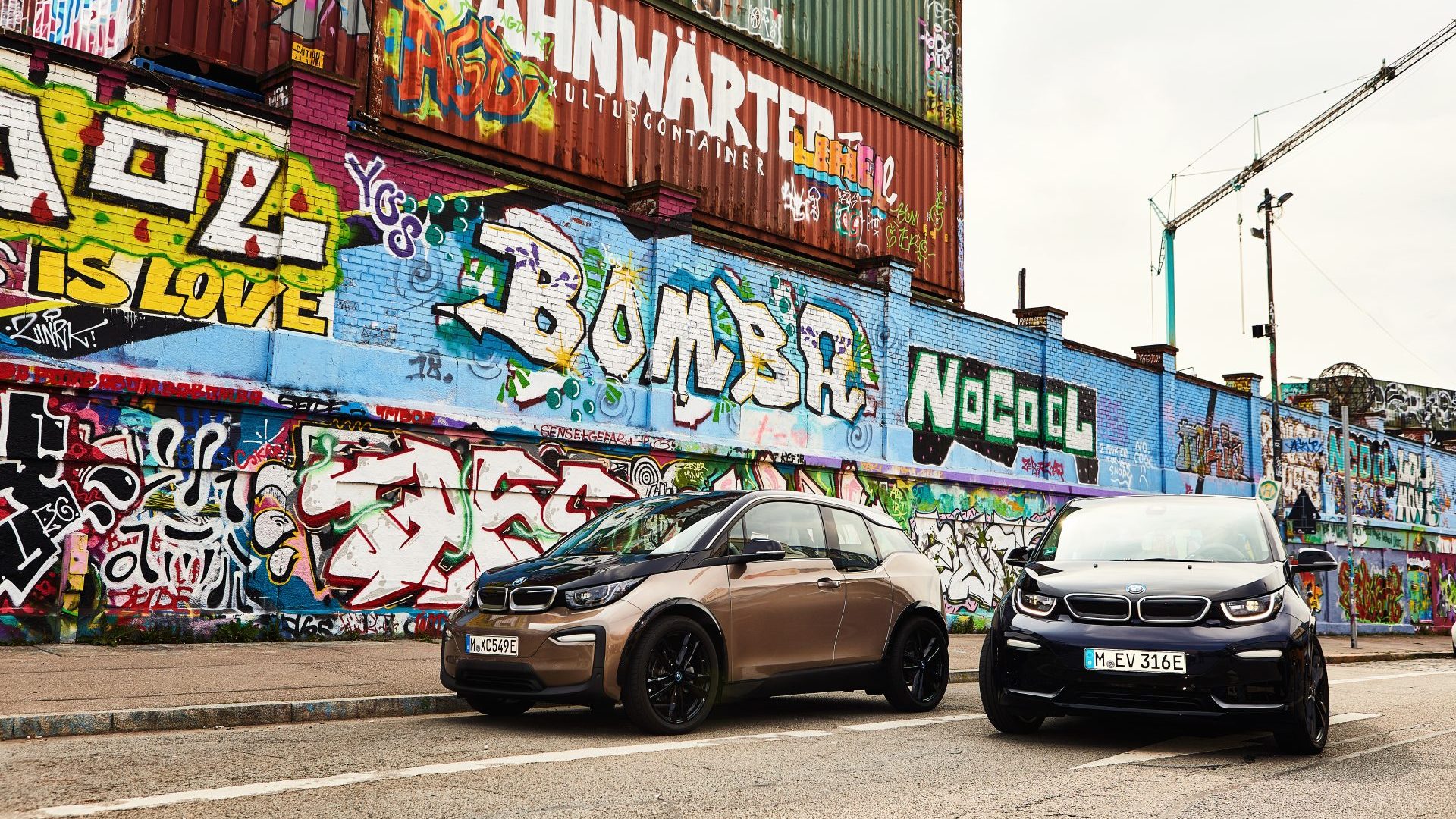

The i3 will be one of five electric vehicles sold under BMW or its Mini subsidiary in 2021. They will include the i3, the Mini EV coming in late 2019, the iX3 crossover in 2020, and both the i4 and X5-sized iNext, which launch in 2021. BMW’s board of management chairman Harald Krüger initially outlined the plan in his announcement of the i4 at the kickoff of the 2018 Paris Motor Show, yet failed to disclose the i3 as the fifth vehicle. But we got the scoop.
In an email to The Drive, BMW i spokesperson Paloma Brunckhorst said, “The BMW i3 is a really important car for us.” Brunckhorst continued, “In 2021 we will have the BMW i3, the Mini BEV, the BMW iX3, the BMW i4 and BMW iNext.”
The spokesperson declined to comment on whether the i3 would become a permanent fixture of BMW’s lineup.
BMW launched the i3 in 2013 with a 22 kilowatt-hour battery. It has since received two battery capacity upgrades, first to 33 kWh in 2016, and second to 42 kWh in 2018 with the start of the 2019 model year. Its 42-kWh battery allows 162 miles of range according to the BMW, though WLTP testing suggests a 193-mile range.
“At BMW we work constantly to ensure our vehicles reflect the latest developments in technology,” the spokesperson added. “This is why we have brought out the 120Ah battery update. The 120Ah model is therefore designed to meet our customer’s needs perfectly. […] The BMW i3 is an incubator for innovations and brought technologies like eDrive, carbon, etc to the mother brand BMW. “
BMW’s battery upgrade for the 2019 i3 is important to keep the model relevant in an increasingly competitive EV market, but has BMW done enough to future-proof the model? Its only competitor in the subcompact electric hatchback segment, the Chevrolet Bolt, brings to battle a bigger battery and a more efficient powertrain that gives it 238 miles of range to the i3’s guaranteed 162. The Chevy’s $7,830 cheaper price tag also makes a good argument for it as an option over the i3.
Not helping the i3’s case is the modern market’s crossover fixation. The range and price point of Hyundai’s tiny-but-mighty Kona EV may prove more attractive to EV buyers than the BMW’s badge, and larger upmarket options in the compact EV crossover segment are due to explode in the next two years. The Jaguar I-Pace, Audi e-Tron, Mercedes-Benz EQC, BMW’s own iX3, and even the Tesla Model Y are expected to show up to the fight by the end of 2020, and despite not directly competing with the i3, there is no arguing that they appeal to a broader customer base.
The only ace up the i3’s sleeve is its status as the sole premium option in the subcompact segment. Will that be enough to maintain its attractiveness to buyers through 2021? The market will decide.